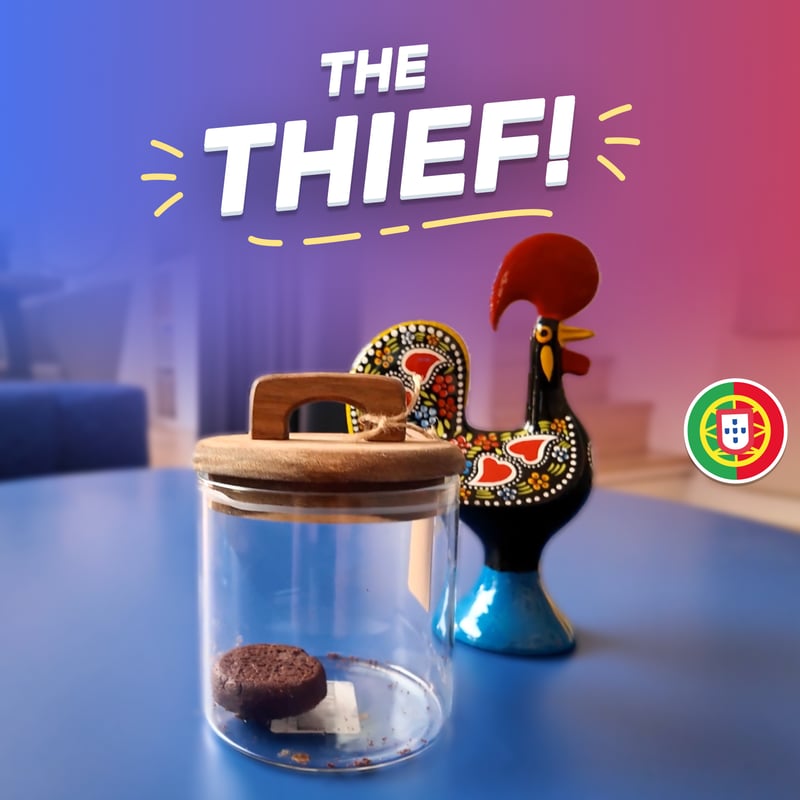Rui, Joel, and Damiana start their day in the office chatting about coffee (do you know where the term ‘bica’ comes from?) and fitting in a bit of exercise.
Uma Manhã No Escritório
A Morning at the Office
Cavalo Lusitano
Lusitano Horse
Learn more about the Lusitano horse, a versatile breed that originated in Portugal.
O Ladrão
The Thief
Damiana catches a thief in the office!
Os Portugueses São Simpáticos?
Are Portuguese People Friendly?
Joel takes to the streets to find out just how friendly Portuguese people really are.
Liliana Precisa De Tempo
Liliana Needs Time
Liliana and Bruno discuss some problems in their relationship. Notice how the verb ficar is used in a variety of different ways throughout their conversation.
Reencontro de Dois Amigos do Liceu
Reunion Of Two High School Friends
Sónia and Manuel meet by chance and talk about their old friends from high school, using lots of adjectives to discuss their personality traits!
A Família do Adriano
Adriano's Family
Adriano tells us about each member of his family. Toggle on the Translate button and explore the differences between the verbs ser and estar, the verbs that mean “to be”. For this episode, let’s focus more on exploring the language, instead of comprehending what you hear. Listen once and then go through line by line, […]
Palavras Opostas
Opposite Words
Leonor has a test on opposite words tomorrow, so she asks her father to help her study while they walk home from school. Throughout their practice, you’ll learn lots of Portuguese adjectives, plus many examples of when to use ser vs. estar.
Uma Relação a Fingir
Daniela is worried about her relationship and goes to her friend Zeca for advice.
A Viagem
The Trip
Petra is planning a road trip across the United States. She excitedly tells Flávio about all the preparations.
Measurements in Portuguese
What do cooking, taking a trip, shopping for clothing, and building or furnishing a home have in common? They all involve different types of measurements. To prepare you to discuss sizes and measurements in Portuguese, we’ll cover some basic Portuguese vocabulary related to length, width, height, weight, distance, and so on. Here are a few […]
Degrees of Adjectives
In Portuguese, adjectives change form depending on the gender and number of the noun. Similarly to English, they can also be expressed in different : Positive Degree This is the basic form of each adjective. We use it to qualify a noun without making any comparisons. Comparative Degree You use the comparative degree to… you […]
Talking About Food
Portugal is a country of food lovers, so we use a lot of different expressions to describe the food we eat and how we feel about eating it. The 2 ways to say “I’m hungry” in Portuguese are: | Hunger and Satisfaction I’m Hungry! For starters, instead of saying I am hungry, in Portugal we […]
Simple and Compound Adjectives
Adjectives are words that describe or qualify nouns. They can be if they’re just one word, or if formed by two or more elements, usually (but not always) connected by a hyphen (-). Simple Portuguese Adjectives Compound Portuguese Adjectives More compound adjectives:
Um Longo Fim de Semana
A Long Weekend
Bored out of his mind, Pedro accepts João’s suggestion to watch a movie, but wants to know everything about it before it even begins.
O Velho Inverno
The Old Winter
Sr. Alberto and Sr. Osório catch up with each other and have a lighthearted conversation.
Um Bom Profissional
A Good Professional
Miguel tells João about his new job working at a restaurant.
Desafios Profissionais
Professional Challenges
Patrícia has a major headache after completing another big project at work.
Good/Bad vs. Well/Badly
What’s the difference between mau and mal? What about bom and bem? These pairs of Portuguese words are very similar in meaning, but they’re not interchangeable. It comes down to understanding the difference between adjectives and adverbs and how they are used in Portuguese. Adjectives Good and bad are adjectives, which modify nouns (people / places […]
Introduction to Portuguese Adjectives
are words that describe a noun, assigning it a quality, state, appearance, or other property. (Adverbs are also used to describe, but instead of nouns, they modify verbs, adjectives, and other adverbs.) In Portuguese, using adjectives requires that you consider the gender and number of the word being modified, as well as the word order […]



 Damiana
Damiana Joel
Joel Rui
Rui
 Eduardo
Eduardo

 Joana
Joana
 Sandra
Sandra
 Natacha
Natacha Pedro
Pedro

 Madalena
Madalena
 Eliana
Eliana





 Joseph
Joseph



